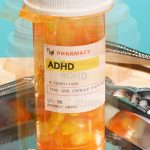Study Shows Nearly 300% Increase in ADHD Medication Errors

The increase in medication errors among children taking drugs for attention deficit hyperactivity disorder (ADHD) is a concerning trend, as highlighted in a study published in the journal Pediatrics. Over a 22-year period, errors reported to U.S. poison control centers have surged by nearly 300%. This dramatic rise is primarily attributed to the increased diagnosis and prescription of ADHD medications for children. In 2019, approximately 10% of U.S. children had been diagnosed with ADHD, with roughly 5% of all children in the country receiving a prescription for an ADHD medication.
The study emphasizes that these therapeutic errors are preventable, emphasizing the need for improved patient and caregiver education, as well as the development of child-resistant medication dispensing and tracking systems.
Here are some key findings and insights from the study:
1. Increase in Errors: The study analyzed data from the National Poison Data System from 2000 through 2021 and identified 124,383 therapeutic errors linked to ADHD medications among patients under 20. The frequency of these errors increased by 299%.
2. Demographics: Two-thirds (66.6%) of the errors involved children aged 6 to 12 years, three-fourths (76.4%) of the cases were among males, and half (50.5%) involved stimulants and related compounds.
3. Serious Outcomes: Alarmingly, 4.2% of cases resulted in a “serious medical outcome.” This highlights the potential dangers associated with medication errors in ADHD treatment.
4. Common Scenarios: The most common scenarios for medication errors included “inadvertently taken or given medication twice” (53.9%), followed by “inadvertently taken or given someone else’s medication” (13.4%) and “wrong medication taken or given” (12.9%).
5. Preventable Errors: Many of these errors were attributed to simple, preventable mistakes. These errors often stemmed from busy households and distracted caregivers. Proper medication storage, documentation, and the use of tools like pillboxes and apps can help mitigate these errors.
6. ADHD Medication Variety: The growing variety of ADHD medications available has also contributed to the rise in errors. With multiple medications to choose from, it’s easier to confuse them, increasing the likelihood of mistakes.
7. Genetic Component: Some parents with undiagnosed and untreated ADHD may be managing their child’s medication, creating a scenario ripe for errors.
8. Potential Dangers of Overdosing: While doubling up on stimulants might lead to symptoms like headaches, suppressed appetite, and an upset stomach, the use of certain medications like alpha-1 adrenergic blockers (e.g., guanfacine and clonidine) can lead to more severe consequences, including a dangerous decrease in blood pressure.
9. Self-Reporting Bias: The study acknowledges limitations, particularly the potential bias in self-reporting. Not all cases of medication errors involving ADHD drugs are reported to poison control, as some parents may take a wait-and-see approach before seeking medical assistance.
In conclusion, this study underscores the importance of vigilance in the administration of ADHD medications to children. Medication errors are often preventable, and improved education and safety measures can help reduce the alarming increase in errors reported over the last two decades. It’s crucial for healthcare providers, parents, and caregivers to work together to ensure the safe and effective use of ADHD medications for children.





